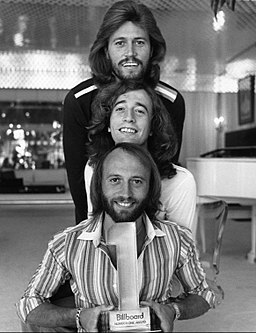The Bee Gees were a British-Australian music group formed in 1958, consisting of three brothers - Barry, Robin, and Maurice Gibb. They achieved international success in the 1970s with their unique blend of pop, R&B, and disco music.
Early Years: The Bee Gees began their music career in the late 1950s, performing in small clubs and pubs in England. They moved to Australia in the early 1960s and released their first album, "The Bee Gees Sing and Play 14 Barry Gibb Songs," in 1965. The album featured a mix of rock and roll and ballads and established the group as rising stars.
Success and Legacy: In the 1970s, the Bee Gees rose to international stardom with their unique sound that combined pop, R&B, and disco. They became known for their distinctive falsetto harmonies, catchy melodies, and danceable beats. Hits such as "Stayin' Alive," "How Deep Is Your Love," and "Night Fever" became global chart-toppers and defined the disco era.
The Bee Gees' influence on music has been profound, and their legacy continues to this day. They have sold over 220 million records worldwide, making them one of the best-selling music groups of all time. Their music has been covered by countless artists and continues to inspire new generations of musicians.
Impact on Popular Culture: In addition to their music, the Bee Gees also had a significant impact on popular culture. They were known for their flamboyant fashion sense and hairstyles, which became iconic symbols of the disco era. The group's music has also been featured in numerous films and television shows, including "Saturday Night Fever" and "The Simpsons."
The Bee Gees were one of the most successful and influential music groups of the 20th century. Their unique sound and catchy melodies continue to resonate with fans around the world, and their impact on popular culture will be felt for generations to come.






0 Comments
If you find any mistakes with the lyrics or would like to share some thoughts, Please leave us a comment.